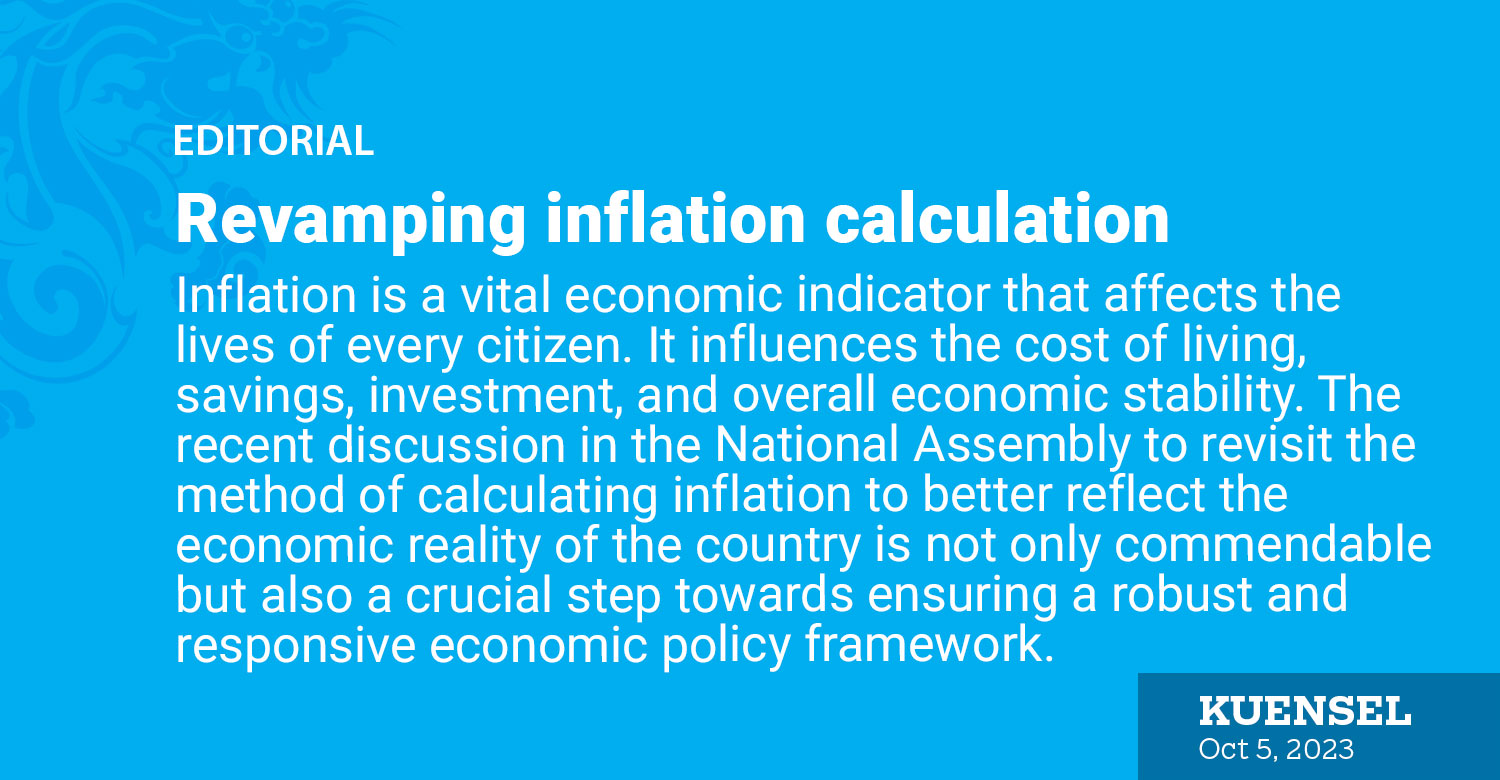Inflation is a vital economic indicator that affects the lives of every citizen. It influences the cost of living, savings, investment, and overall economic stability. The recent discussion in the National Assembly to revisit the method of calculating inflation to better reflect the economic reality of the country is not only commendable but also a crucial step towards ensuring a robust and responsive economic policy framework.
Finance Minister Namgay Tshering’s commitment to customise Bhutan’s inflation calculation method to suit the local economic context while adhering to international standards is a prudent approach. It recognises that one size does not fit all when it comes to economic metrics. Bhutan’s unique economic circumstances, characterised by its small population, distinct geographic challenges, and reliance on hydroelectric power, require a specialised approach to measuring inflation.
The decision to entrust the National Statistics Bureau (NSB) with the responsibility of developing a new inflation calculation method is a testament to the government’s dedication to accuracy and transparency. The NSB’s expertise in data collection and analysis is pivotal in ensuring that the country’s inflation rate accurately reflects its current economic situation. This move underscores the importance of evidence-based policy decisions and reaffirms Bhutan’s commitment to sound economic governance.
One of the primary objectives of revisiting the inflation calculation method is to ensure that it accurately reflects Bhutan’s current economic situation. This is a crucial aspect, as an inaccurate representation of inflation can lead to misguided policy decisions. By customising the calculation method, Bhutan can account for unique economic factors such as its heavy reliance on hydropower, which can have a significant impact on price stability. This, in turn, will enable the government to formulate policies that are tailored to the country’s specific needs.
Accurate inflation data is vital for informed decision-making at both the governmental and individual levels. For the government, it serves as a critical tool for designing monetary and fiscal policies that promote economic stability and growth. At the individual level, citizens rely on inflation data to manage their household budgets, make investment decisions, and plan for the future. Inaccurate inflation data can lead to fiscal imbalances, erode purchasing power, and undermine public trust in economic institutions. Therefore, the commitment to refining the calculation method is a step towards ensuring that Bhutanese citizens receive reliable information.
Finance Minister’s assurance that Bhutan will continue to adhere to international standards during the inflation calculation process is a demonstration of Bhutan’s commitment to global economic best practices. Maintaining alignment with international standards is essential for transparency and credibility, especially in an interconnected global economy. It ensures that Bhutan’s economic data is comparable with that of other nations, facilitating international trade and investment.


